What I read in 2021
For the past four years, I have been doing yearly reading summaries now. Initially, I started because I really enjoyed reading such lists from other people. Now, I mainly write them because it is a great way to reflect back on the year. This year is no different in that regard.
Software Engineering at Google
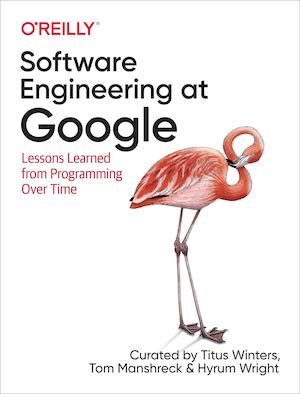
In 2016, Google published a book about Site Reliability Engineering, the SRE book. Last year, the SWE book followed: A very detailed account of how software engineering works at Google. As such, it covers everything from working in teams over code reviews and testing to Google’s monorepo.
All in all, the book is amazing and I would recommend it to every software engineer. It felt like what software engineering classes at university should teach but usually do not. I frequently think back to concepts I learned from the book.
However, there was a large variance in how interesting I found the chapters: The content of some chapters felt completely obvious, e.g. the code review chapter. Some chapters were incredibly insightful, even though I did not expect it, e.g. the ones on build systems or dependency managment. Finally, some chapters give great insights to Google-specific tooling, e.g. large-scale changes, and are interesting in order to read to learn more about Google-scale engineering.
I ended up writing detailed reading notes for the entire book.
The Man Who Solved The Market
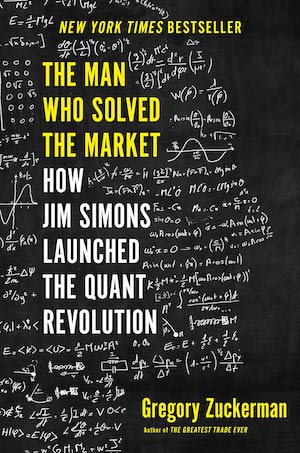
Jim Simons was a math professor who ended up starting the world’s most successful hedge fund, RenTec. The book tells the entire story of RenTec, from the early beginnings to the eventual political involvement of its executives. Its especially interesting because Simons was the first person to really apply quantitative techniques, early forms of machine learning methods, to investing.
The book reads like a thriller and I had trouble putting it out of my hands. There’s multiple aspects that make it so fascinating: First, Simons is a deeply interesting person, and I enjoyed his interviews long before reading the book. Furthermore, there’s so much mystery around RenTec that much of its story was not widely known before the book came out.
This was one of my favorite reads of the year. I would recommend it to anyone at least loosely interested in finance or machine learning history. I also ended up writing down some more detailed takeaways on the book in my reading notes.
Flour Water Salt Yeast

2020 was the year I learned how to cook well – and read Salt, Fat, Acid, Heat. For 2021, I decided to learn how to bake well – and thus decided to read Flour Water Salt Yeast to learn more about baking bread. I had been baking my own bread every couple of days for more than the first year of the COVID-19 pandemic, so this felt like the right book to read.
The book was a good choice for that: It gives a good overview of how to bake bread and inspires one to try different techniques. Again, I ended up writing detailed reading notes.
Thinking, Fast and Slow
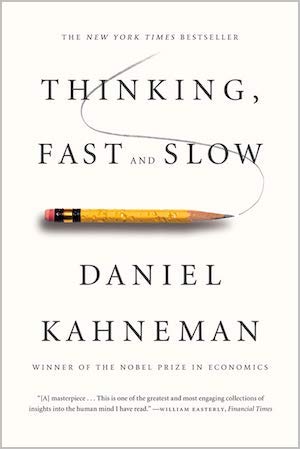
Thinking, Fast and Slow is a classic, pop-scientific psychology book. I have probably read a dozen books the past couple of years that cite it, and plenty of people have mentioned it to me. This year, I decided it was finally time to read it myself.
The author, Daniel Kahnemann, won the Nobel Prize for economics for his discoveries in psychology. The most well-known among them is probably prospect theory, which describes how people find losses much more painful than they enjoy equivalent gains, leading to a bunch of irrational investing choices.
The book describes this bias and many others. Each chapter discusses a different bias or psychological phenomenon. Read individually, they are all really interesting and often surprising.
However, when reading the entire book front to back, it becomes a hard read: 400 pages in, I was not able to recall many of the biases I had read about. The lack of structure in the book made it difficult for me to take away as much from the book as I was hoping I would. In the end, it took me many months to complete the book, and I can completely understand why many people never finish it at all.
Dune
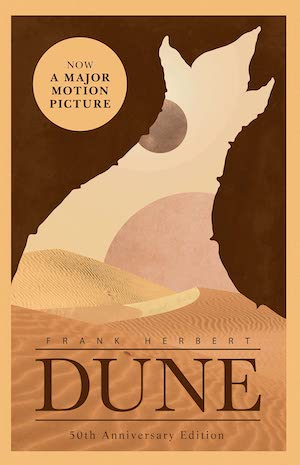
Dune is one of the most popular science fiction series of all time. Since it was made into a film this year, I heard about it again, and decided to finally read it. It is worth noting that the movie only covers roughly the first half of the book.
I found the book to be a decent read. The story involves political games and a few twists that made it enjoyable to read. However, it was a bit difficult for me to initially get into the book, mostly because of the style of writing.
Who Am I? And If So, How Many?
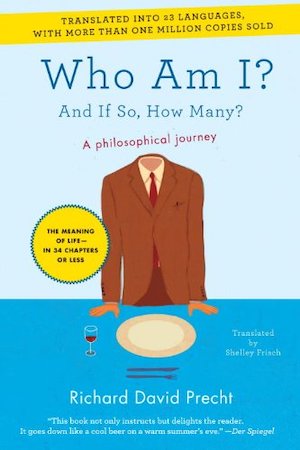
Who Am I? And If So, How Many? is an introduction to philosophy’s biggest topics. Each chapter of the book discusses a different question, ranging from the meaning of life to ethical questions.
The author does not only discuss the philosophical questions very well but also narrates the historical aspects of how they came to be. What I found particularly interesting is that many questions started out as philosophical ones but are now core topics of hard sciences, such as neuroscience. This for example includes the questions of how our brain works or what language is.
I deeply enjoyed the book and will probably go through it again in a few years.
Homo Deus

Last year, I read Sapiens. It is the first book in Harari’s trilogy about human life, and discusses humanity’s past. Homo Deus is the second book, describing the present and, partly, the future.
I am a huge fan of Sapiens, and thus had high expectations for Homo Deus. I especially liked the beginning of the book, since it is similar to Sapiens. As I continued with the book, I had more and more trouble with it though.
The parts of the book discussing the future are quite opinionated. The problem with this is that the author keeps stating things as if they were not opinions but facts, making it a frustrating read. According to book reviews, the third book of the trilogy is even more like this, and I thus decided not to read it.
The Lean Startup
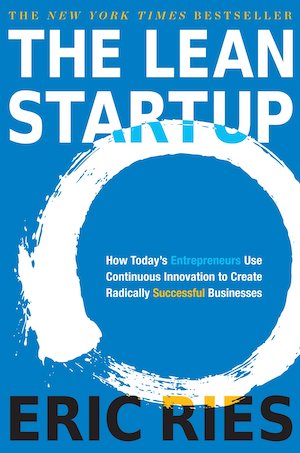
The Lean Startup describes principles for managing startups. The main idea of the book is that founders initially do not really know what customers want. So instead of completely focusing on a well-defined product and then building it in a waterfall-like manner, one needs to figure out what to build. This should be done by quickly iterating based on customer feedback and potentially pivoting to completely new products.
The author defines startup as any human institution that operates in an area of extreme uncertainty. This does not only involve typical startups but can also include individual teams inside of non-profits or big companies.
The book is an easy read and it feels like anybody working in areas of extreme uncertainty should read it.
The Big Short
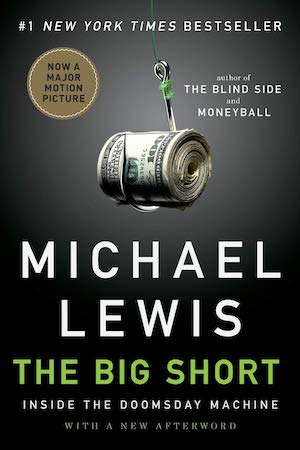
In 2019, I read Flash Boys, a book about high-frequency trading, and enjoyed it a lot. This year, I decided I would read another book from the author, Michael Lewis, and settled on The Big Short. It describes the events leading up to the US housing crisis, focusing on a few people who saw it coming and then shorted bonds related to the housing market.
The reason I found the book to be interesting is not the explanation of how the US housing crisis came to me – that has been discussed in many places before and was not new to me. However, there were not that many people that saw it coming early, and their stories are really interesting.
In the end, I found the book to be quite good, but also did not like it as much as Flash Boys. The book was also turned into a film, which is a bit dramatized but still quite decent.
Invent and Wander
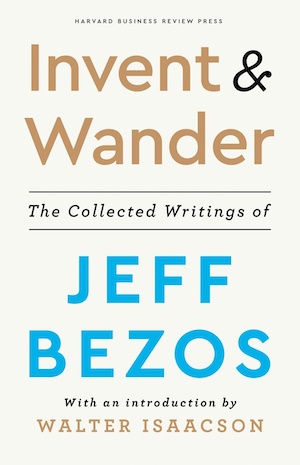
Invent and Wander is a book about Jeff Bezos and his writings – shareholder letters and texts derived from various speeches. It was an odd read: I mainly read it as part of the free Kindle Unlimited trial, in which I only found a few interesting books. Bezos is a great writer and a lot happened in the history of Amazon, but as a book this is not well structured, so it was just an okay read. I would not read it again.
The Hitchhiker’s Guide to the Galaxy
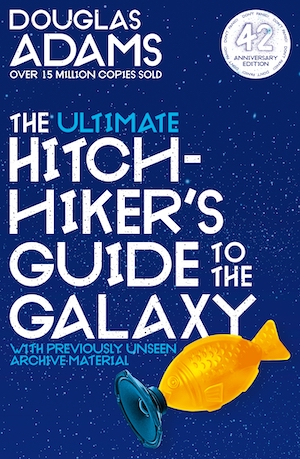
The Hitchhiker’s Guide to the Galaxy was originally a radio comedy and eventually turned into a, series of, books. It is widely known in pop culture as the origin of 42 as the answer to the question of life, the universe and everything. I listened to this as an audiobook, narrated by Stephen Fry.
I found the book to be incredibly funny. Fry does a great job at narrating it in many different voices. The events in the book are often rather random, but to be fair this only adds to the funniness.
Drive: The Surprising Truth About What Motivates Us

There are different kinds of motivation: biological, extrinsic, intrinsic. The last of these is the most powerful but also the most fragile: It can only grow in certain environments. Drive describes this in detail, citing many scientific studies along the way.
While I was roughly familiar with these kinds of motivation, I learned a great amount about the intricacies of intrinsic motivation. All of this was not only an interesting discussion of motivation but also a great guide towards happiness: The book not only describes that intrinsic motivation is more effective but also that it leads to a more full-filled life. I especially liked that the author then applied these ideas to areas outside of work, e.g. to improving education systems or personal fitness.
I also ended up writing a more detailed summary in my reading notes.
Passenger 23
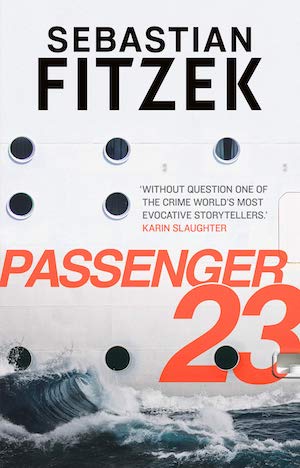
Sebastian Fitzek is one of Germany’s most popular author of thriller books. This was the first book that I read from him: People go missing on a cruise ship and a troubled police officer goes on the ship to investigate.
I did not enjoy the book much, and will probably not read anything else from Fitzek. All characters are the most extreme version possible. There is no subtleness in anything and no good character arcs. I still ended up reading the entire book, mostly because I wanted to know how it ends.
The Midnight Library
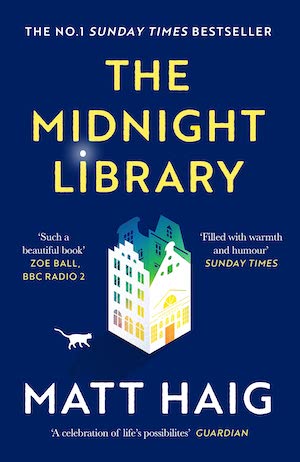
The Midnight Library tells the story of Nora, who attempts suicide and subsequently lands in the midnight library: A place that allows her to live every possible life she could have lived had she made different choices. Nora uses this place to change the decisions she regrets, such as not following her best friend to Australia or not becoming a professional swimmer.
The book is deeply emotional and written in a way that makes it easy to follow Nora’s feelings. I always found it frustrating that we can only live through a finite number of choices, e.g. we are only able to live in a few places for multiple years. The main message of the book is somewhat obviously but nevertheless told well: All our choices inevitably lead to some regrets. Not being able to live through all possible lives makes life no less livable than not being able to listen to all possible songs makes music unenjoyable.
Looking back, I am quite happy about how diverse the set of books was. What additionally got more diverse this year compared to last year is the medium through which I have consumed books: I read some in paper form, some on Kindle, and then I also started listening to audiobooks.
Initially I was quite skeptical of audiobooks, but now I am a huge fan. Given how much time we sometimes spend in gyms or on walks, audiobooks are a great way to consume more books. They only work well for certain kinds of books though: The kind that you can follow along easily in a linear fashion (i.e. you do not have to skip back a few paragraphs occasionally) and there are no important visualizations.
Reflecting back on the year, I also noticed that I read quite irregularly, going from fighting my way through a couple of more difficult books, to not reading at all, and then reading a ton during the last two months. Given that I roughly averaged one book per five days at the end of the year, I would love to attempt reading one book per week in 2022. I am not yet sure if that is feasible though, so I will not make it a New Year’s resolution. We will see how much I will actually end up reading.